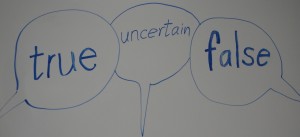Is poison for one really food for another?
 The first anniversary of What About the Boy’s publication occurs at a time when voters in my country are preparing to make a big decision. It’s no secret to anyone who knows me that I can bear to think about only one of the likely outcomes. And yet, as I encounter the same tired talking points being hurled back and forth every day, by people impervious to ideas other than the ones they’ve already accepted, it seems that discussion has stopped being productive.
The first anniversary of What About the Boy’s publication occurs at a time when voters in my country are preparing to make a big decision. It’s no secret to anyone who knows me that I can bear to think about only one of the likely outcomes. And yet, as I encounter the same tired talking points being hurled back and forth every day, by people impervious to ideas other than the ones they’ve already accepted, it seems that discussion has stopped being productive.
I’m not really talking about national politics or any particular issue, because other controversies can follow the same template. Just to pick an example, at the height of the vaccine debate, opposing sides had ceased talking to each other in favor of connecting with uninformed people and convincing them that the other side was dangerous. (OK, fair disclosure: I participated in that scuffle.) And I’ve seen coworkers—highly skilled, presumably intelligent professionals—disagree so fervently that the encounter more closely resembled a dogfight than a rational exchange of views. Bystanders intruded at their own risk.
Given so much discord, is it possible to back up and find universal agreement on anything?
Probably there’d be no objection from any side to this claim:
Things are not as they should be.
Naturally, saying this implies that we know how things should be, although disagreement resumes the minute anyone proposes a fix.
On the plane of existence where we mere mortals operate, I see approximately three alternative responses:
- We can trust that somebody (possibly we ourselves) has answers that will make things right (or at least better). Everybody else just needs to be persuaded or otherwise brought into line until that remedy takes hold.
- We can observe that most human effort is wheel-spinning that accomplishes little more than elevating one’s blood pressure. Unfortunately, if nothing can be accomplished, that leaves only depression or at best fatalism.
- We can acknowledge that things are not only in a mess but are likely to remain that way, and conclude that the only defense is to carve out as nice a niche, for ourselves and our loved ones, as is possible, and take consolation there.
(There may be a Master Plan, in the context of which all this chaos makes sense, perhaps beautifully. I’m inclined to believe that Plan exists. But the focus here is on our current sphere of reference.)
I hadn’t thought of it in these terms before, but all the above scenarios play out in WATB.
Following Joseph’s birth, things most certainly were not as they should have been!
Judy and I believed with all our hearts that somebody would know how to improve the situation, and would be motivated to do so. When we found likely heroes, we gave them our allegiance and trust. And in all honesty, decades later I cannot bring myself to say that we were wrong. Judy went so far as to encourage others to do likewise. Sometimes, the resistance she encountered astonished her.
Joseph’s condition improved—but after extraordinary effort, things were still far from right. We fell so far short of the hoped-for result that Judy simply could not accept what had happened.
Picking up the pieces (with much guidance from Song Yi), I eventually created a nurturing little haven that remains the home base for Joseph as well as his younger siblings. There is indeed a deep consolation in these latter-day developments. I celebrate some of them on my personal Facebook page.
But the original problem has never been resolved, or even adequately addressed. Apparently, no one knows how to do that.
OK, so things tend not to work out so well. Still, each of us does make a difference, in everything we do. It was my hope in writing WATB that a frank portrayal of my family’s experience would add something to the question of how adversity might be handled (or in keeping with the metaphor in the book, how a maze ought or ought not be negotiated).
I also hope that I’ve reflected accurately on our interactions with other people and have portrayed them fairly.
Some of the people in this story disappointed me. Disappointment was in direct proportion either to my justification in expecting something from them or to the extravagance of their unfulfilled promises. Also, there were a few low-lifes who took advantage of our desperation for their personal gain. On the other hand, I owe boundless gratitude to so many people who could offer nothing more than friendship, a helping hand, and the benefit of their own perspective. Without them, none of us would have survived.
WATB supports the conclusion that entrenched positions can lead to ruin. In other words, we do need to continue talking to one another—and listening. All of us, myself included.
Tags: